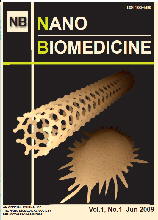Synopsis
Polyclonal metastasis, which arises from clusters of circulating tumor cells, promotes metastasis development and has become a major target of metastasis inhibition. Mouse experiments have clearly verified that nonmetastatic and metastatic tumors coexist and form metastatic nests, but the detailed mechanism of extravasation remains unclear. We established a three-dimensional tumor microvessel model to investigate extravasation between nonmetastatic tumors, metastatic tumors, and mosaic tumor organoids in a mixed state by time-lapse imaging and to determine the sequential steps of the extravasation of tumor cells via vascular remodeling. This comparison revealed a new concept of extravascular invasion via vascular remodeling in metastatic carcinoma. Furthermore, the involvement of liver host cells, the hepatic stellate cells, demonstrated an interaction with metastatic cells to facilitate metastatic foci formation. Moreover, Adam28 was highly expressed exclusively in metastatic tumor cells, suggesting its involvement in vascular remodeling. These results demonstrate the ability of metastatic tumor cells for extravasation in polyclonal metastasis, which may lead to the development of new therapeutic targets.
Key words: polyclonal metastasis, vascular microenvironment, extravasation, microvessel model, tumor organoid
All documents
DOI :
"https://doi.org/10.11344/nano.16.19"
J-stage :
Ikeda Y, Oshima H, Kok SY, Oshima M, Matsunaga YT. Spatiotemporal observation reveals metastatic tumor-driven vascular remodeling as a potential route to polyclonal colonization. Nano Biomed 2024; 16: 19-27.
